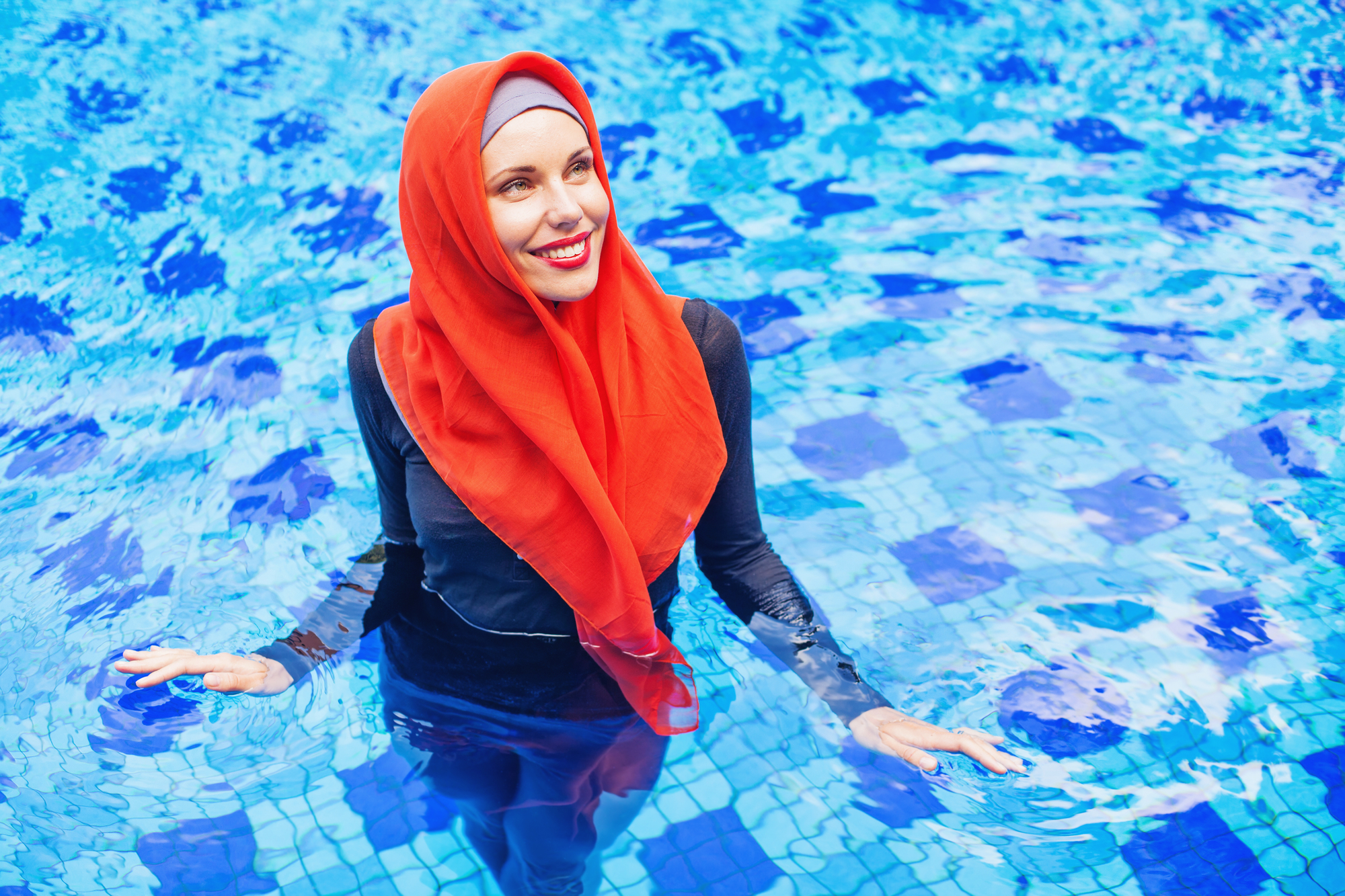The burkini, or full body swimsuit, that some Islamic women choose to wear to the beach, was banned in the city of Cannes on the French Riviera this summer, and the ban was upheld by the municipal court in August. A number of arrests have been made since the ban was put into effect and about a dozen beach cities in France have subsequently instituted a similar prohibition. Professor of Comparative Literature Rebecca Saunders is a core faculty member of the Women’s and Gender Studies Program at Illinois State University. She calls the ban problematic in its ironic call for “decency.”
Saunders:
David Lisnar, the mayor of Cannes, justified his decision on the basis that burkinis “conspicuously showed off religious affiliation” and “risked disrupting public order at a time when France is subject to terrorist attacks.” His announcement further stated that, until the end of the summer season, beach access and swimming would be “prohibited to all persons not wearing appropriate clothing that respects bonnes moeurs [public decency] and the principle of laïcité [secularism].” He emphasized that any clothing “bearing a connotation contrary to these principles” would be subject to arrest and fine. In a subsequent press conference, he stated that burkinis were a “symbol of Islamic extremism.” Another city official defended the ban speaking of the burkini as a “conspicuous form of dress that signifies allegiance to terrorist movements that are at war with France.”
Unfortunately, French Prime Minister Manuel Valls supported and augmented these stereotypes averring that “the burkini isn’t a fashion. It’s the translation of a political plan, of anti-social attitudes, founded on the enslavement of women.” A lawsuit has been filed by the Federation of Muslims of Southern France and I doubt that the appellate courts will uphold the ban, although any ruling is likely to come after the scheduled termination of the ban on August 31.
Many Muslim women see the burkini very differently: as a way to be comfortable swimming in public or taking their kids to the beach while respecting the Koranic principle of “hijab” or modest dress. In my view (which coincides with a number of Muslim women and other French people), the burkini ban is problematic for multiple reasons, not least because it posits, absurdly, that women must expose their bodies in order to enjoy a public beach and be “decent” (while it’s perfectly “decent” to wear only a sliver of a thong on the same beach). Most women who choose to wear the burkini do so of their own accord and not because they are “enslaved” (as the Prime Minister suggests) and it seems to me nonsensical to suggest that a woman choosing to cover her body (or her head with a scarf) is more oppressed than are Western women who are subject to a kind of regime of obligatory exposure and sexualization—an obligation largely policed by social pressure, but in this case translated into law.
In addition, the idea that wearing a burkini expresses an allegiance to terrorism is not only preposterous, but dangerous; it falsely associates all Muslims with Islamic terrorism and legitimates discrimination against Muslim women. These are effects that potentially remain long after the ban has been terminated. The burkini, moreover, is a garment clearly associated with only one religion which is being singled out for discrimination. (Wearing a cross necklace, by contrast, is perfectly acceptable). The burkini ban is also of course an infringement on the basic personal freedom of a person to dress as s/he sees fit and as s/he desires.
Meanwhile, the ban has created some other absurdist quandaries: what about surfers wearing wet suits? Or the sizeable numbers of extremely rich Saudi Arabian women who vacation on the Riviera (and patronize its most exclusive boutiques and restaurants)? Or women walking on the beach in leggings, a long sleeved T-shirt and hat?
While I disagree with the ban, I think it has to be understood within the context of the French principle of secularism, the history of recent attacks in France, and the large Islamic population concentrated in southern France (which is located near the former French colonies of North Africa). French laïcité is somewhat different in nuance from the American principle of the separation of church and state or of religious freedom. It grows out of the strong anti-clerical strain of the French revolution on which modern French society has been built. While regularly debated and reinterpreted, laïcité or secularism has largely been interpreted as an obligation for public officials to remain religiously neutral, but has sometimes, as in this instance, shaded into the idea that public places must be free of signs of religious affiliation. This debate has been played out in controversy over the wearing of the veil in public schools and the right to wear the niqab in public, and are part of an ongoing struggle to balance French values of secularism, personal liberty, and religious tolerance.
Saunders can be reached via MediaRelations@IllinoisState.edu.

